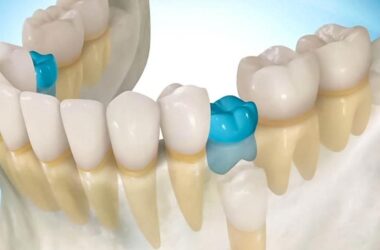Health experts recommend exercising, drinking enough water, and eating a healthy diet to be and feel fit. On this last point, it is necessary that you can consume vitamins and minerals needed for the proper functioning of the body. Among these, we find vitamin E.
Let’s see below which foods contain this vitamin and the benefits obtained by consuming it. We will also discuss the symptoms that may indicate that our body has too much or too little vitamin E.
What is vitamin E?
- Formula: C29H50O2
- Mol. Wt.: 430.71
- CAS number: 1406-18-4
- ATC code: A11HA03
To start, let’s define vitamin E. Simply put, it’s a compound with tocopherol and tocotrienols, 4 of each. It was discovered in the 1920s, but it wasn’t until the mid-30’s that it became available in its pure form. It has been used in medicine for different purposes since that time.
Alimentos with vitamin E
Vitamin E is present in many foods, so its consumption is effortless. Therefore, it will be easy to reach the recommended 15 milligrams per day. So let’s see what some of these foods are.
- Oil. The almond sunflower, among others, has a large amount of vitamin E. In 100 grams, it contains approximately 40 mg.
- Dried fruits. It stands out in almonds and hazelnuts. They exceed 24 and 15 mg, respectively, in just 100 grams of fruit.
- Fish. They all have a little bit of vitamin E, but the elver and the eel stand out among them.
- Avocado. It is straightforward to get almost anywhere in the world. It has more than two and a half grams of vitamins in just 100 grams.
- Spinach. If you consume 100 grams of this product, you get 2 mg of the vitamin.
What is vitamin E for?
Among the functions that vitamin E fulfills in our body is its protection against free radicals. We mean substances that are parts of everyday life, such as the sun’s rays and even the pollution that we find throughout the environment.
When food is converted into energy, radicals are also released. It is there when vitamin E intervenes to control the effect that these can have on the body, especially on cells.
Another of its functions is to enable the body to protect itself. That is why it is responsible for strengthening the defense system.
Properties and benefits of vitamin E in health
Vitamin E has medicinal properties that positively affect the human body. So let’s see some of its properties and the effect produced by each.
Take care of the skin.
If consumed in moderation, it helps slow down the appearance of wrinkles. Although it cannot eliminate them, it does allow the skin to maintain its freshness for much longer.
This benefit is mainly due to its antioxidant property. Thanks to tocopherol acetate and acetic acid, the skin can maintain its ability to regenerate itself for much longer. And as we have already pointed out, it protects the entire skin from the sun’s rays.
Increases hair health
Another of the properties attributed to vitamin E is caring for the hair. This is because it stimulates the production of essential elements for a healthy scalp, such as sebum. At the same time, due to its antioxidant properties, it keeps hair hydrated and firm. You can get capsules with vitamin E to improve the health of hair and nails.
protect cells
All the benefits obtained from this vitamin have to do with its ability to prevent the natural deterioration of the cells of various organs. Thanks to this, it is possible to enjoy better health.
Such is the case of red blood cells, which tend to oxidize over time and, in some cases, form blood clots. Both things can be avoided thanks to the consumption of vitamin E. Mainly for its antioxidant properties.
Vitamin E deficiency symptoms
It is unusual for a person in good health to have vitamin E deficiency. This means that the deficiency of this vitamin is due to some disease. And as expected, if our body does not have vitamin E, it is straightforward for us to suffer from some health problems. The symptoms are as follows:
- Tiredness. There are muscle aches and a feeling of fatigue.
- Slow. The muscular reaction becomes heavy and slow. Even walking becomes difficult.
- Vision problems. The sight is affected that simple activities, such as reading, are almost impossible.
Symptoms of excess vitamin E
Just as vitamin E deficiency considerably affects health, its excess also negatively influences the body. Some of the symptoms are:
- Diarrhea. This is constantly present.
- Nausea. It is accompanied by dizziness.
- Tiredness. The feeling of general malaise can last for several days.
When is the use of vitamin E supplements necessary?
Indeed, vitamin E must always be present in our body, but its consumption cannot be abused, as we have already seen. But, of course, that could also bring harmful effects. So that is why you should be very careful about the amount you consume, especially vitamin supplements.
Since everyone is different, it’s best to have a doctor decide if it’s a good idea to take vitamin E supplements. This will be prescribed when the patient cannot reach optimal levels with natural foods.
In any case, the maximum recommended daily amount is 1000 milligrams. And this would be in the most severe cases of deficiency, either due to the habit of not consuming it or due to a health problem that eliminates it.







